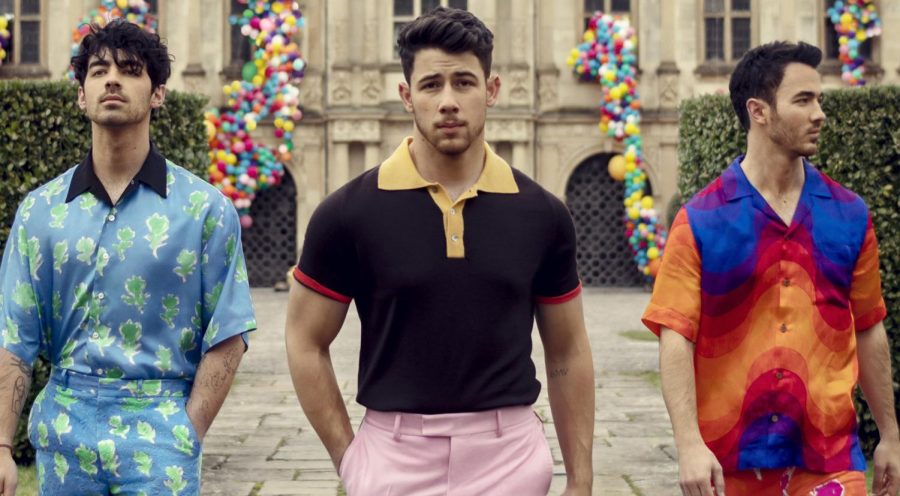Why You Should Take Boybands Seriously: The Jonas Brothers
March 24, 2019
When the Jonas Brothers returned to the music scene on March 1 with the release of their hit single “Sucker,” many were catapulted back into the simpler times of 2009. Obama had just become president. The only item on our to-do lists was to practice our times tables. But we got to thinking, if the Jonas Brothers sounded just as fresh in 2019 as they did a decade ago, then where have they been all this time?
The Jonas brothers, consisting of Kevin, Nick, and Joe, started their band in 2005. They rose to fame through the help of Disney as they took on roles in movies such as the Camp Rock franchise, as well as their TV show Jonas LA. During this time, they released several hit songs and gained worldwide fame; however, we believe their success was limited due to societal attitudes surrounding boybands and their legitimacy.
This could be attributed to the fact that the Jonas Brothers fanbase was primarily young girls. Teenage girls carry a large amount of power and influence on pop culture and entertainment, but boybands have limited longevity because society views bands that teenage girls idolize as less serious or legitimate musicians. The term “boyband” itself trivializes the genre. If a boyband is a musical group featuring young male artists then we would go as far as to suggest that bands like Nirvana and The Beatles are also boybands.
It’s not a secret that all of the Jonas Brothers have spectacular vocal capabilities. After the Jonas Brothers went on hiatus in 2013, Joe Jonas became the lead singer of pop band DNCE, releasing hit songs such as “Cake by the Ocean.” It showed his ability to reach an older audience with slightly more alternative music. Nick became a solo artist, gaining immense fame from songs such as “Jealous” and “Close.”
This inability to view boyband members as versatile singers is also evident in One Direction, who skyrocketed to fame in 2011 after appearing on the X-Factor. They were teenagers at the time, with their target audience being young girls. Now as they pursue solo careers, their main following continues to be young women and they are unfairly and prematurely disregarded by other demographics (primarily, men). Niall Horan of One Direction released a folk-pop album called “Flicker” in 2017 containing several songs that you could hear on any alternative radio station, but the sad truth is his name will always be connotated with a young boy singing to fangirls, not someone that, say, our dads would listen to.
But we also must consider that the Jonas Brothers are also riding on the wave of nostalgia that their return has brought to its original fan base, girls entering adulthood who most likely did like the band because they were cute. But at the end, their music is good, and that’s all that’s important.















